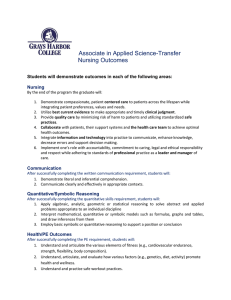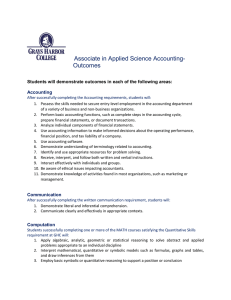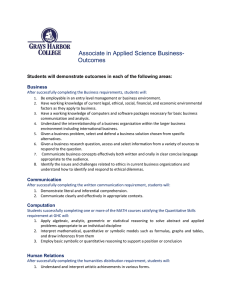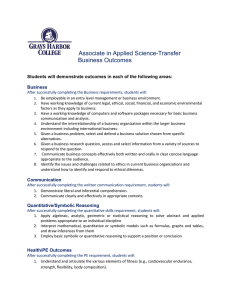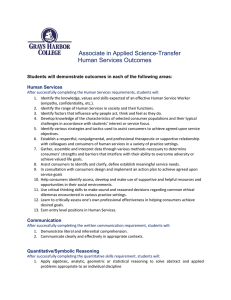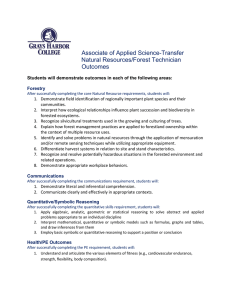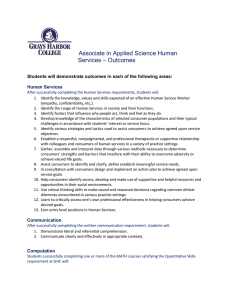Associate in Business-DTA Degree Outcomes Communication:
advertisement
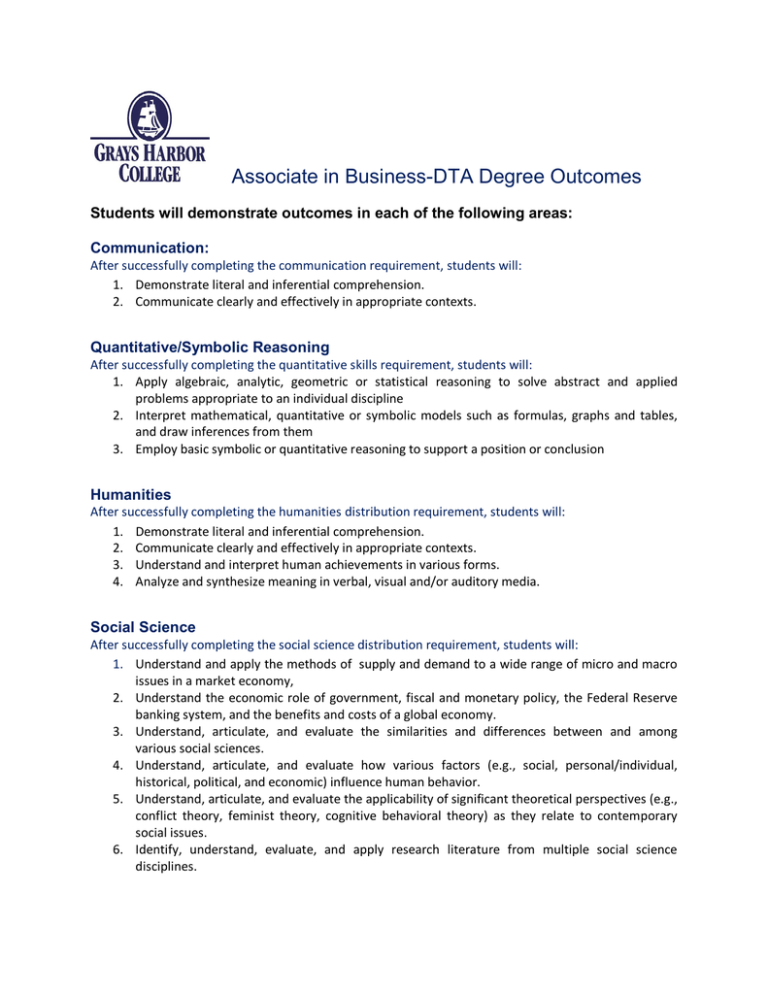
Associate in Business-DTA Degree Outcomes Students will demonstrate outcomes in each of the following areas: Communication: After successfully completing the communication requirement, students will: 1. Demonstrate literal and inferential comprehension. 2. Communicate clearly and effectively in appropriate contexts. Quantitative/Symbolic Reasoning After successfully completing the quantitative skills requirement, students will: 1. Apply algebraic, analytic, geometric or statistical reasoning to solve abstract and applied problems appropriate to an individual discipline 2. Interpret mathematical, quantitative or symbolic models such as formulas, graphs and tables, and draw inferences from them 3. Employ basic symbolic or quantitative reasoning to support a position or conclusion Humanities After successfully completing the humanities distribution requirement, students will: 1. Demonstrate literal and inferential comprehension. 2. Communicate clearly and effectively in appropriate contexts. 3. Understand and interpret human achievements in various forms. 4. Analyze and synthesize meaning in verbal, visual and/or auditory media. Social Science After successfully completing the social science distribution requirement, students will: 1. Understand and apply the methods of supply and demand to a wide range of micro and macro issues in a market economy, 2. Understand the economic role of government, fiscal and monetary policy, the Federal Reserve banking system, and the benefits and costs of a global economy. 3. Understand, articulate, and evaluate the similarities and differences between and among various social sciences. 4. Understand, articulate, and evaluate how various factors (e.g., social, personal/individual, historical, political, and economic) influence human behavior. 5. Understand, articulate, and evaluate the applicability of significant theoretical perspectives (e.g., conflict theory, feminist theory, cognitive behavioral theory) as they relate to contemporary social issues. 6. Identify, understand, evaluate, and apply research literature from multiple social science disciplines. Natural Science After successfully completing the science distribution requirement, students will: 1. Acquire a basic competency in probability theory and statistical analysis as it applies to business operations. (MATH& 146 required) 2. Understand the nature of science, including the role of observation in the development of scientific theories and laws; 3. Use the languages of science to interpret and communicate scientific information; 4. Use scientific knowledge to analyze and evaluate data and solve problems; and 5. Obtain and analyze experimental data. Health/PE Outcomes After successfully completing the PE requirement, students will: 1. Understand and articulate the various elements of fitness (e.g., cardiovascular endurance, strength, flexibility, body composition). 2. Understand, articulate, and evaluate how various factors (e.g., genetics, diet, activity) promote health and wellness. 3. Understand and practice safe workout practices. 4. Identify, understand, evaluate, and apply appropriate fitness strategies (e.g., diet, exercise). Specified Business Elective Outcomes After successfully completing specified elective requirements, students will: 1. Acquire basic competency in the rules and processes of law in business including the study of legal institutions with emphasis on civil litigation, torts, agency, and contracts 2. Perform basic accounting functions, such as complete steps in the accounting cycle, prepare financial statements, or document transactions, to better understand how accounting information is developed. 3. Analyze individual components of financial statements. 4. Use accounting information to make informed decisions about the operating performance, financial position, and tax liability of a company. 5. Be aware of ethical issues impacting accountants. Students who complete the AB-DTA degree will have satisfied the lower division general education requirements and lower division business requirements at the baccalaureate institutions. The degree does not, however, guarantee admission to Washington public baccalaureate schools of business.
